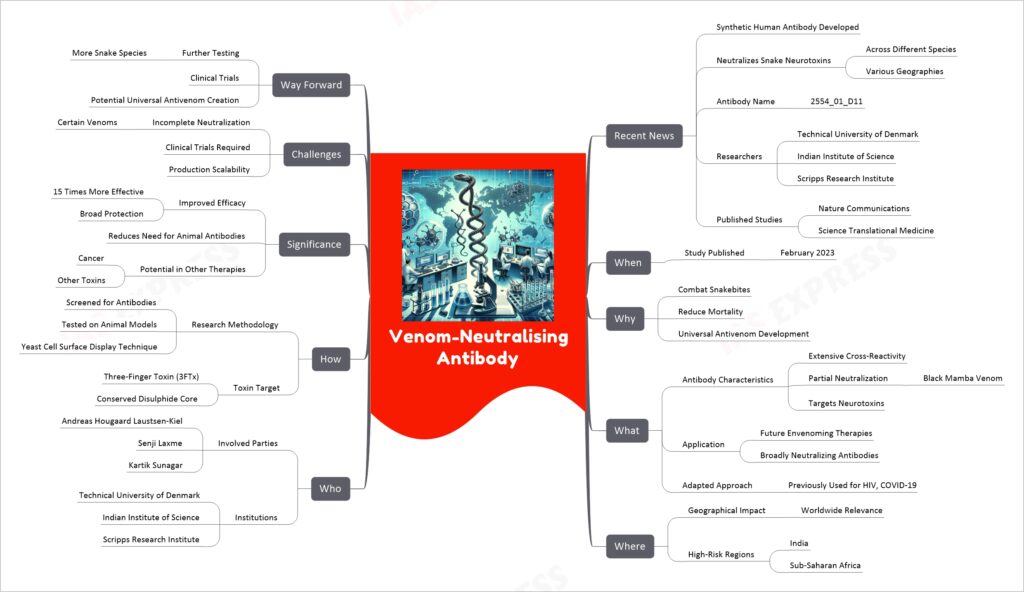Venom-Neutralising Antibody

Venom-neutralising antibodies represent a groundbreaking advancement in the field of antivenom research. Scientists have developed a synthetic human antibody, 2554_01_D11, capable of neutralizing snake neurotoxins from various species globally. This development, led by researchers from the Technical University of Denmark, Indian Institute of Science, and Scripps Research Institute, was published in Nature Communications and Science Translational Medicine. The antibody, adapted from methods used in HIV and COVID-19 research, targets a conserved region in the toxin, showing potential for broad protection against different snake venoms. This innovation is a significant step towards creating a universal antivenom, offering hope for more effective treatments against snakebites, a major health concern in regions like India and sub-Saharan Africa.
If you like this post, please share your feedback in the comments section below so that we will upload more posts like this.

